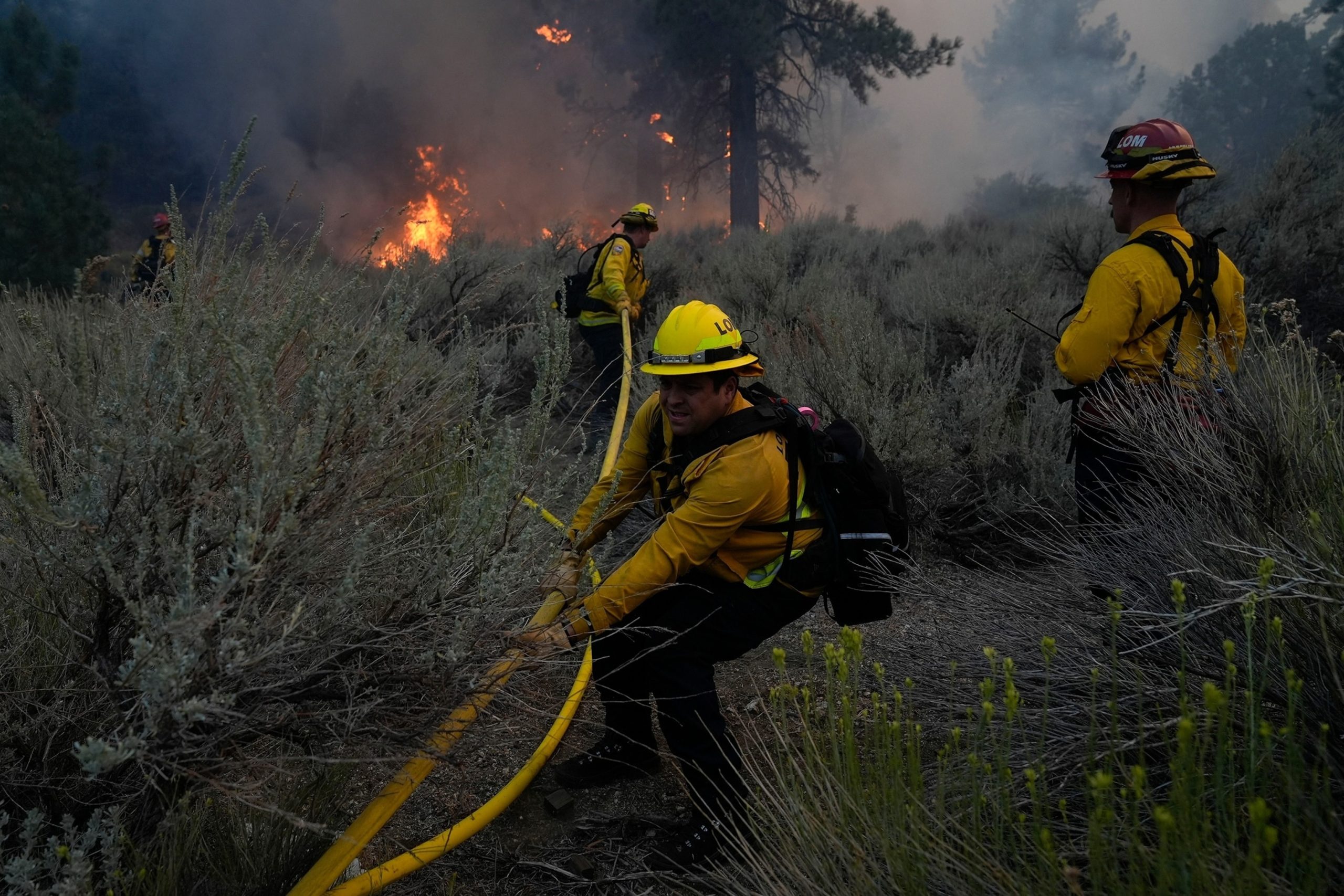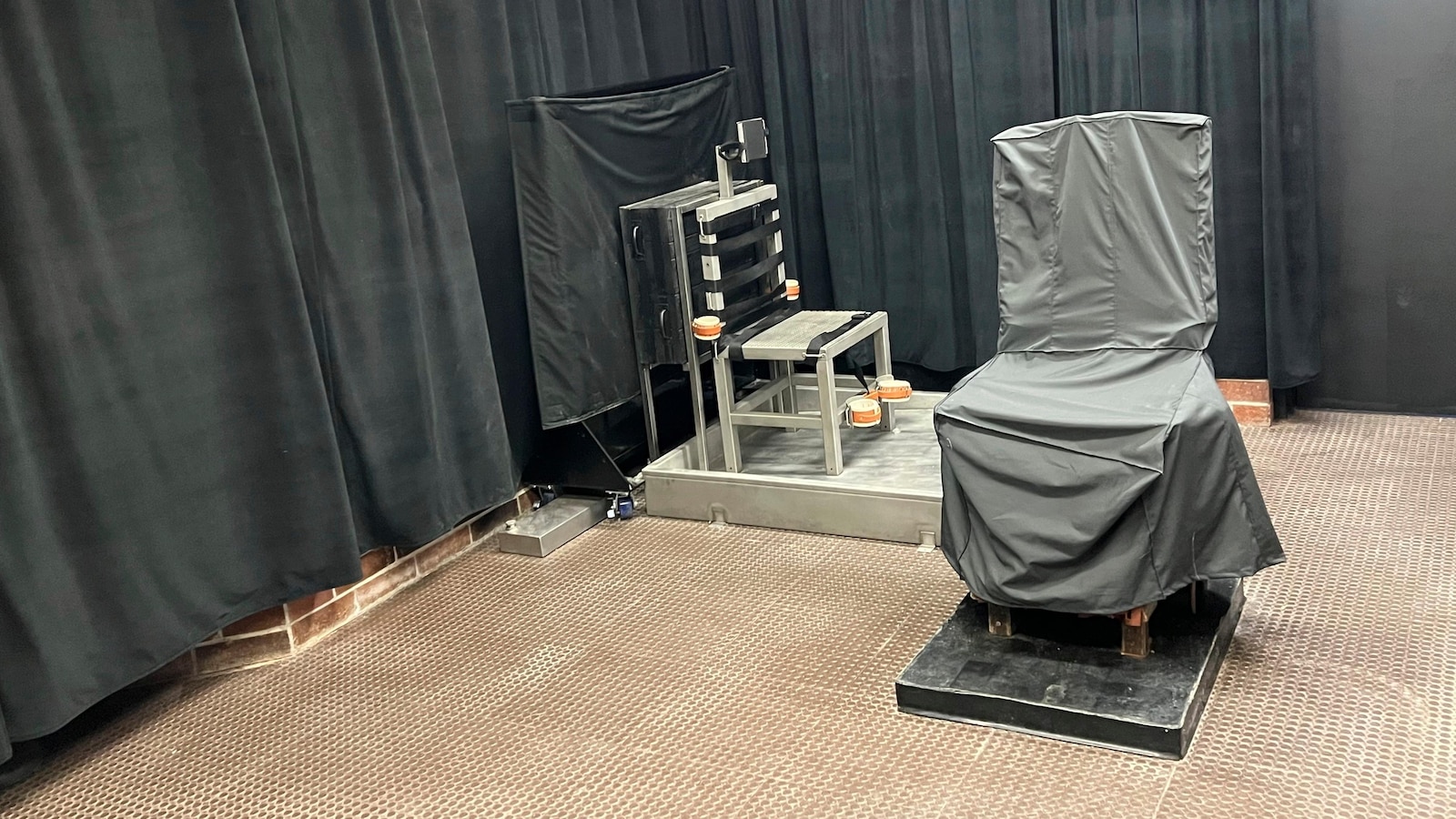When Jill Antares Hunkler purchased land in Belmont County, Ohio, in 2007, she never envisioned her home would be surrounded by 78 oil and gas fracking wells a decade later, she said.
“I wanted to build my home where I had roots,” Hunkler, a seventh-generation Ohio Valley resident, told ABC News. “It was a place where I could live a more traditional, natural life.”
Hunkler’s three-acre property at the headwaters of the Captina Creek Watershed was one of hundreds in the area that she said became a magnet for fracking.

Jill Hunkler is a seventh-generation Ohio Valley resident who says her home was affected by fracking well unitization.
Jill Hunkler
Her property sits on the Utica and Marcellus Shales in the Appalachian Basin, geologic formations known to hold large reserves of oil and natural gas.
As of April 2024, the Marcellus Shale contained about 120 million barrels of oil, while the Utica Shale contained 2.3 million barrels, according to the United States Geological Survey.
There are 1,625 fracking wells in Belmont Country this year, which marks a 25% increase from 2023, according to the Ohio Department of Natural Resources (ODNR), which oversees unitization orders in the state.
Hunkler said when oil and gas representatives called “landmen” came knocking on her door, calling her home and sending repeated notices, she learned of the state’s unitization laws. The fate of her land was largely out of her hands, she said.
“To be perfectly honest, it makes me cry even now,” Hunkler said.
What is unitization?
Unitization is the consolidation of multiple land parcels into a single operational unit for fracking, according to ODNR.
Instead of drilling multiple wells on separate properties, which can be inefficient, unitization combines adjacent properties over a pool to allow for a more coordinated approach to extracting oil or gas.
Because it’s multiple properties, most neighbors in the area must apply to lease their land, according to state law.
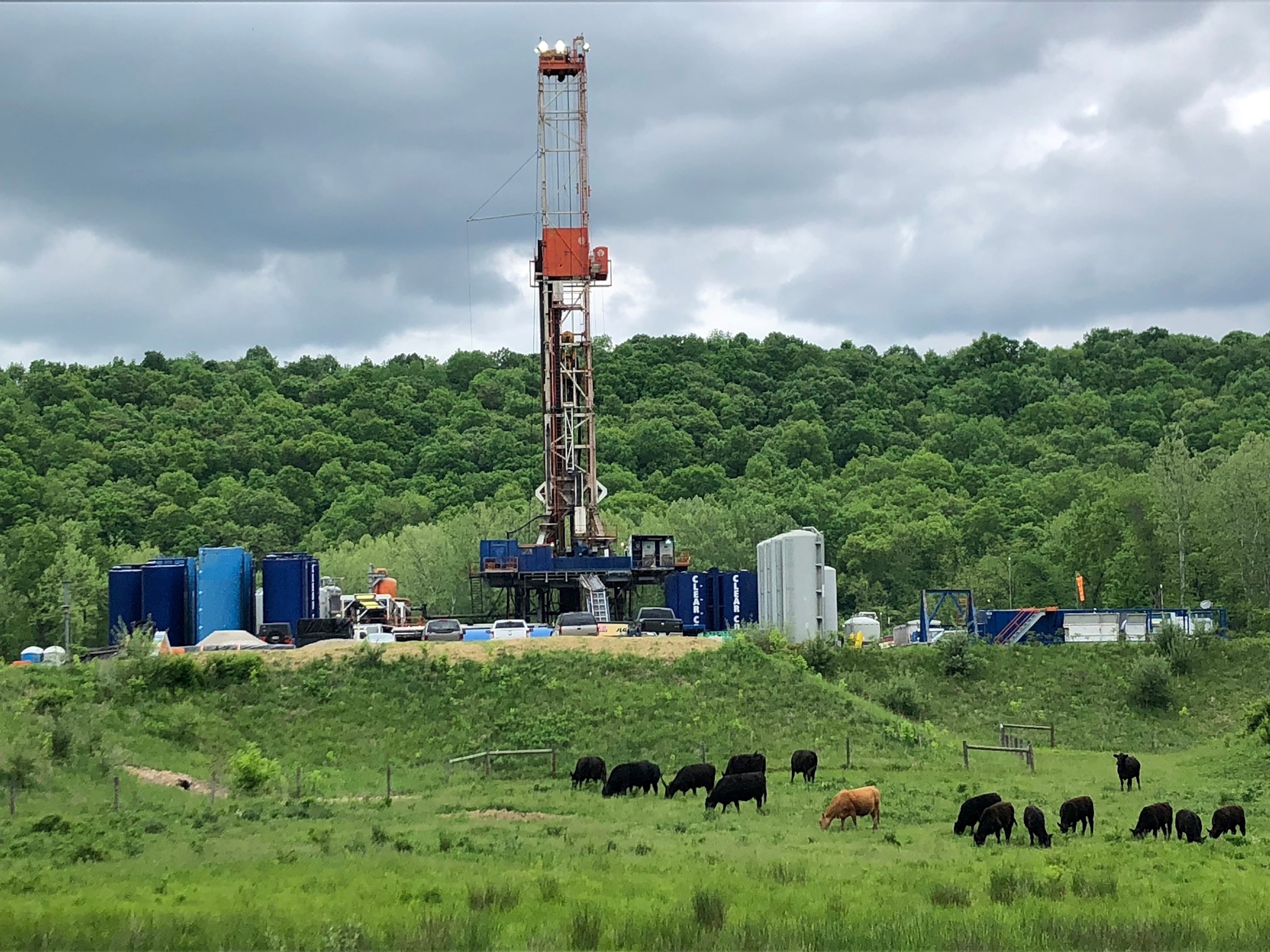
Jill Hunkler is a seventh-generation Ohio Valley resident who says her home was affected by fracking well unitization.
Jill Hunkler
In Ohio, 65% of property owners in a project area must sign an application to lease their property for drilling before going forward, according to ODNR.
This leaves a population of dissenting or “non-participatory” landowners forced into fracking in the area, even if it’s not on their property.
Unitization has been legal in Ohio since 1965, however, the last decade has seen unitization orders surge to meet fracking demands.
The ODNR enacted 112 unitization orders in 2022 and nearly 100 in 2023, according to ODNR records.
Before 2021, which saw 73 unitization orders, ODNR enacted less than 50 orders per year between 2012 and 2020, according to records.
Negotiating a lease
Proponents believe fracking brings jobs back to the region, which historically relied on coal and steel manufacturing, and gives residents the opportunity to make passive income by leasing land.
“Natural gas production has been tremendously profitable for Ohio,” state Sen. George Lang and two researchers said in a 2023 press release posted on the Ohio Senate website. “The shale revolution has been the greatest driver of the state’s economic progress since the late 1990s. Ohio now ranks sixth among states in natural gas production, exporting to our neighbors and the world.”
Ohio law states landowners must make “just and reasonable” compensation for leasing sites, which can vary based on location, under state law.
In 2024, some local drillers reported paying landowners an average of $500 per acre, but lease bonus payments in southeast Ohio can range from $3,000–$6,000 per acre, according to McCleery Law Firm, which provides consultation and legal services to landowners considering entering, or impacted by, a leasing agreement.
“It is also an area where landowners are chronically exploited,” the firm says in their “Landowner’s Guide.”
“This is because landmen usually offer significantly less per acre if they suspect you lack knowledge of the market. Without knowledge of fair market value, an increase of two thousand dollars per acre might seem advantageous, when in reality, the starting offer was simply egregiously low,” the firm claims.
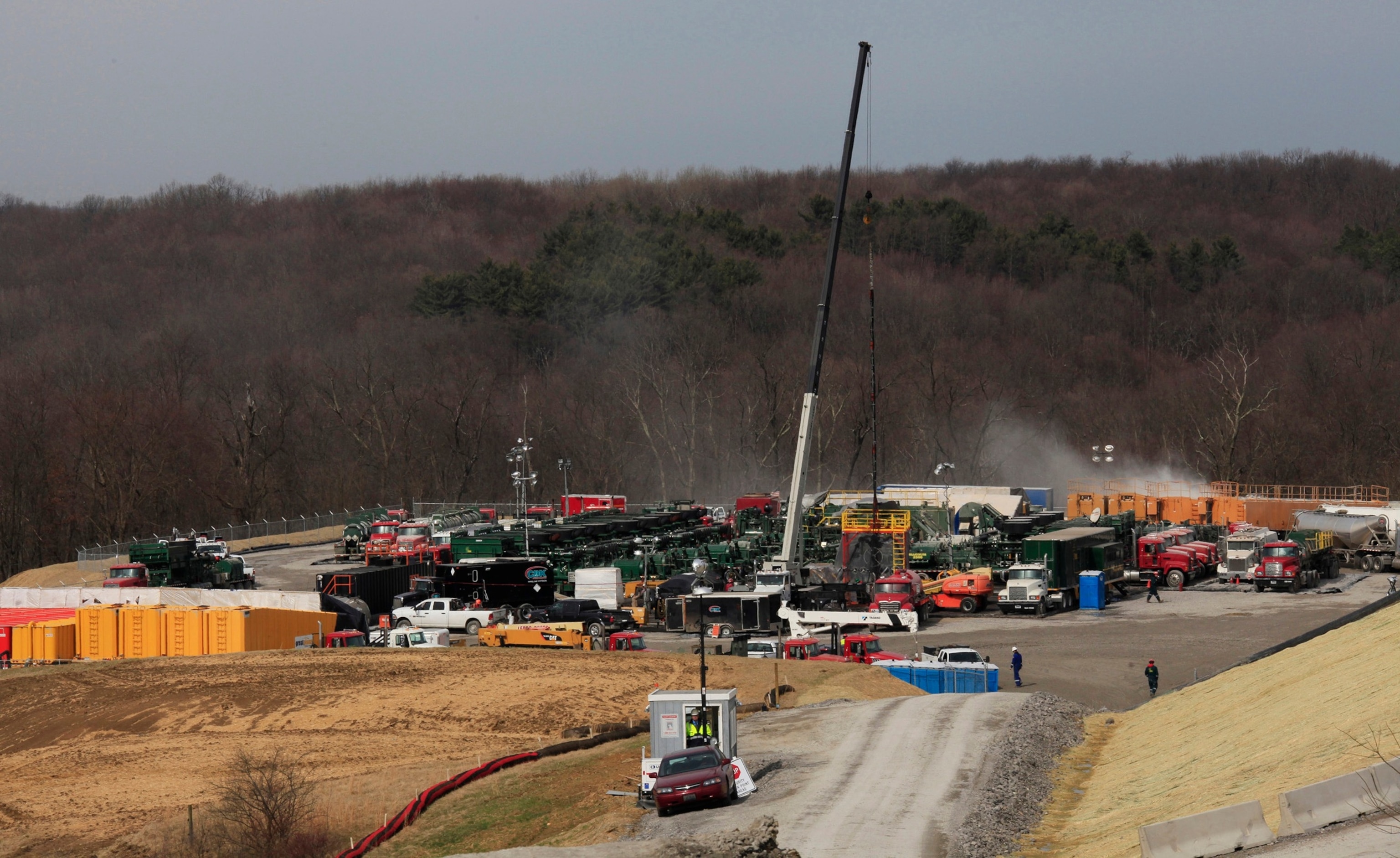
The Marcellus Shale drill site sits several miles from the the home of Bob Hickle in Toronto, Ohio.
Jason Cohn/MCT/Tribune News Service via Getty Images
Property owners also receive royalties on the gas produced, which typically begins at 12.5%, according to ODNR.
Echoing Hunkler’s story, a study published this month in Nature Energy reviewed detailed records of landmen’s dealings with 37 property owners in Ohio to investigate how they may be disadvantaged in lease negotiations.
The records spanned from January 2014 and April 2021, which saw a boom of fracking increases in the state, according to the study.
Researchers found that companies used persistent and personal strategies to overcome landowner reluctance, such as repeated in-person visits, calls and in some cases, contacting their family members and neighbors.
The study cited a log of contact between a landman and a property owner in Noble County, Ohio.
“When their calls go unanswered, they send letters. When those are returned with ‘REFUSED’ handwritten across them, landmen drive to her house. When she refuses to answer the door, they speak to her neighbours and family members,” according to the study.
When property owners refused all requests, the study found widespread use of compulsory unitization.
“In roughly 40% of the wells drilled in Ohio, compulsory unitization applications were used because voluntary consent from landowners was not obtained,” according to the study.
In a statement to ABC News, the Ohio Department of Natural Resources said the role of the agency is “to follow and administer the law, as written.”
“The Division does not have jurisdiction to regulate landmen,” ODNR said.
Changed way of life
“People that don’t live in southeast Ohio have no concept of what it’s like,” Randi Pokladnik, a lifelong resident of the Ohio River Valley and retired research chemist, told ABC News about fracking in the area.
“It sounds like a jet engine in the middle of the night and you can smell the emissions. It’s a constant barrage of sand trucks and fracking trucks with brine in them,” Pokladnik said.
She unaffectionately calls the nightly traffic the “brine truck parade.”
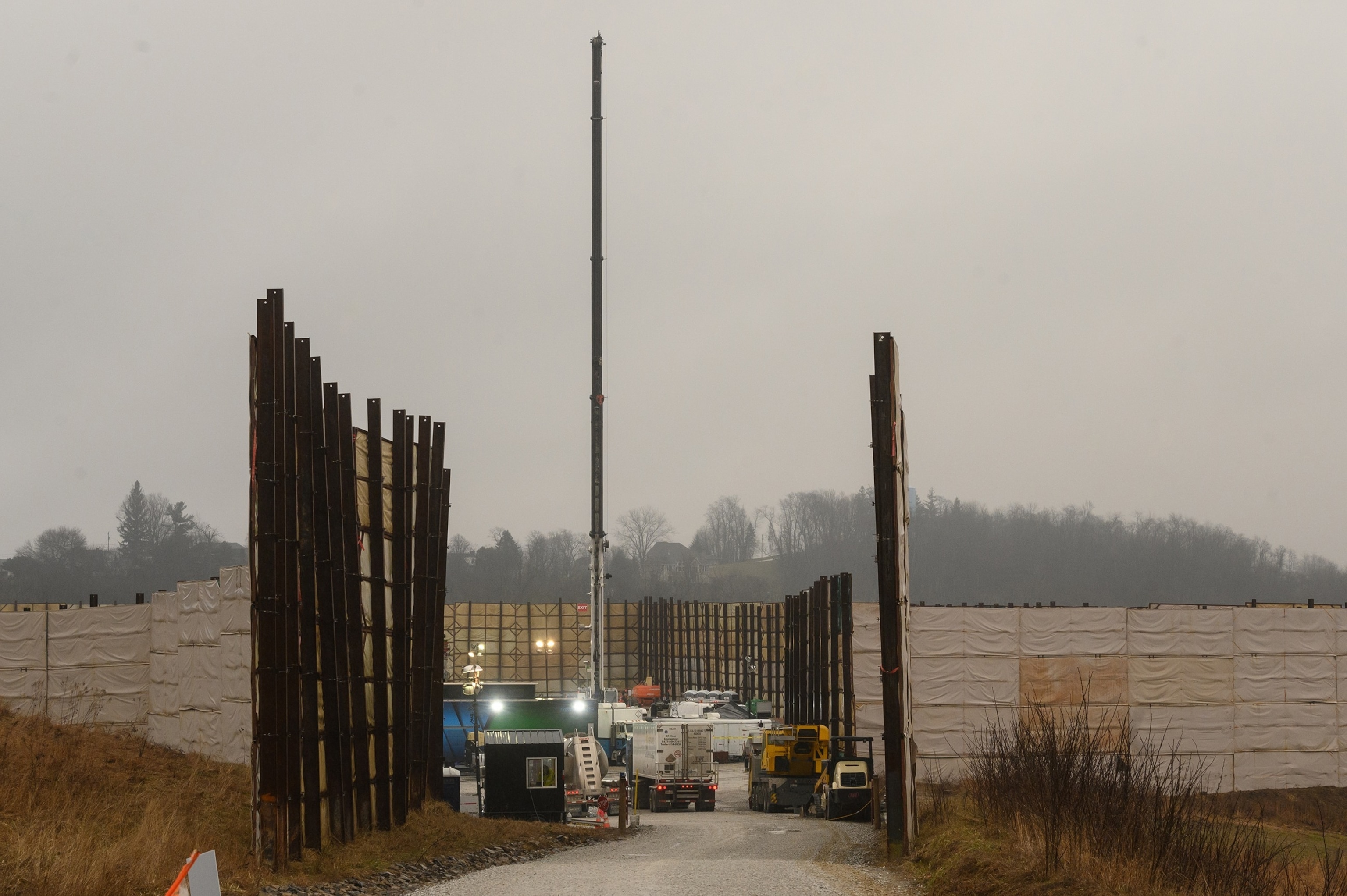
The Rice Energy fracking pad in St. Clairsville, Ohio, Feb. 25, 2020.
Justin Merriman/Bloomberg via Getty Images
Pokladnik and her husband own property in Tappan, Ohio, and despite denying leasing requests from oil and gas representatives for over a decade, in February, Pokladnik’s property was “force pooled” to participate without their consent.
“It made me sick to my stomach when I first got the notice in the mail that they were going to be doing this,” Pokladnik said.
“This is like the ultimate slap in the face for somebody who’s an environmentalist,” she added.
Environmental and health effects
In 2017, the Environmental Protection Agency found scientific evidence that fracking can potentially impact drinking water resources under some circumstances.
Chemicals used for fracking may travel through cracks in the rock into an underground drinking water source and contamination could also occur if a well is improperly installed, if chemicals are spilled from trucks or tanks or if flowback is not effectively contained, according to the agency.
The Yale School of Public Health found that fracking has led to heightened concerns about its impact on the environment and human health due to wastewater and greenhouse gas emissions.
In response to health and environmental concerns, Rob Brundrett, president of the Ohio Oil & Gas Association said companies work to ensure the safety of the properties they work on and the record stands for itself.
Speaking about conventional fracking wells Brundrett told Energy News Network, “The fact that there have been only three major incidents since 2018 is a testament to the industry’s rigorous safety standards and practices,” Brundrett said.
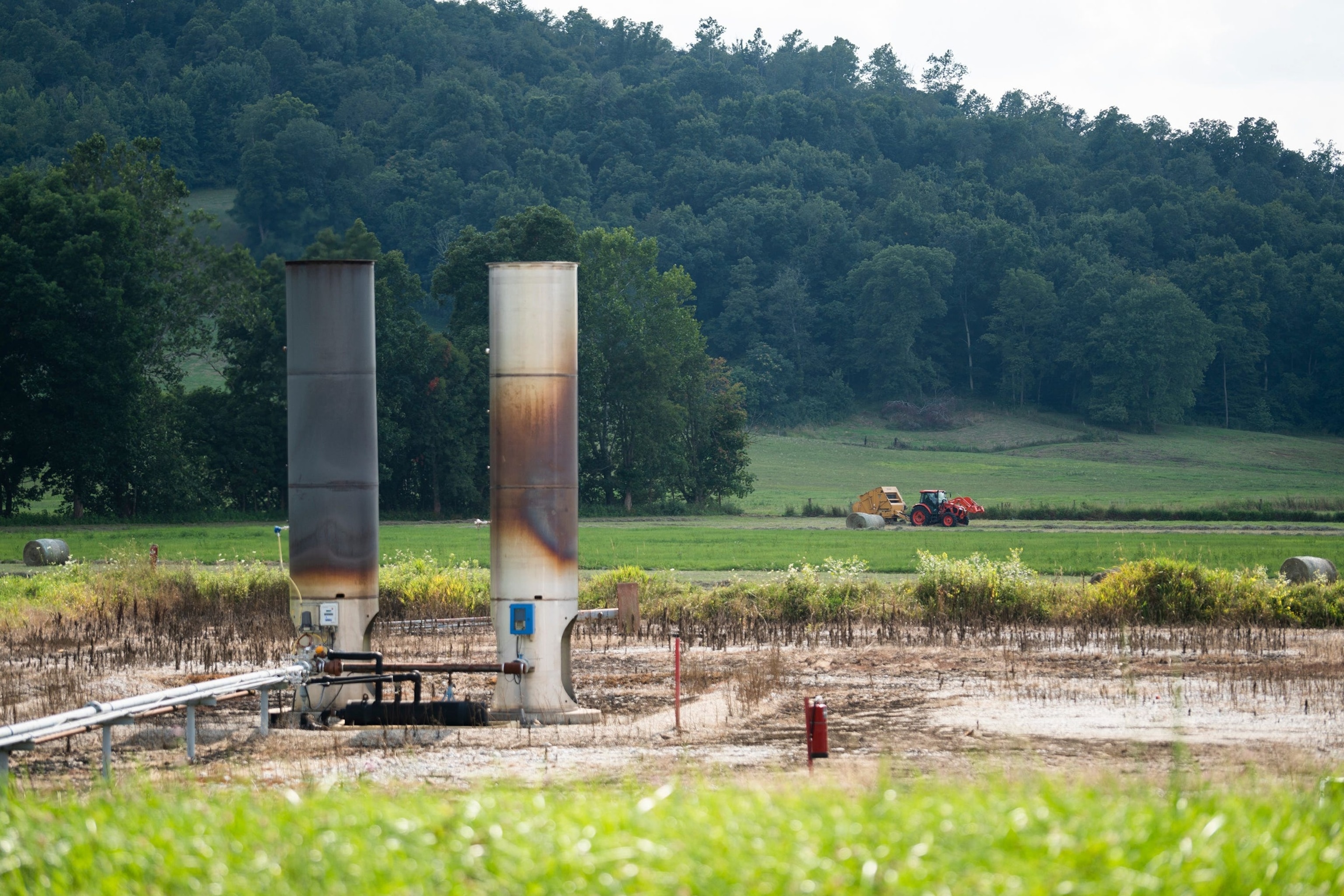
In this Aug. 4, 2023, file photo, a farmer bails hay right next to a well pad in Guernsey County, Ohio.
Courtney Hergesheimer/Columbus Dispatch via USA Today Network, FILE
“Considering that only .004% of Ohio oil and gas operations have had a major reportable incident during that timeframe, I would put our industry’s safety numbers against any other manual industry in Ohio,” he added.
The incidents include a gas leak, crude oil spill and a combustor fire, according to the outlet.
ODNR says it has addressed water well complaints since 1983 and none of the investigations revealed groundwater quality problems due to fracking, the department said in a fracking fact sheet.
However, Pokladnik believes that the effects of fracking in the Ohio River Valley are not in a bubble and should be considered by everyone.
“There’s not a dome over these well pads and everything that we do here is eventually going to cause more climate change,” Pokladnik said.
“So even though you’re not living here and you won’t have to worry about drinking contaminated water or breathing these emissions directly, it is affecting your life,” she added.
Fracking, also known as hydraulic fracturing, is a controversial method of extracting oil and natural gas from deep underground. While it has been hailed as a boon for the energy industry, it has also raised concerns about its impact on the environment and public health. In Ohio, the legality of fracking on property owners’ land is a hotly debated issue.
In Ohio, property owners have the right to lease their land for oil and gas drilling, including fracking. This means that companies can approach landowners and offer them money in exchange for the right to drill on their property. However, there are a number of legal considerations that property owners should be aware of before entering into a lease agreement.
One of the key issues surrounding fracking on Ohio property owners’ land is the potential for water contamination. Fracking involves injecting a mixture of water, sand, and chemicals into the ground at high pressure to fracture the rock and release the oil or gas trapped within it. There have been numerous reports of groundwater contamination in areas where fracking has taken place, leading to concerns about the safety of drinking water supplies.
In response to these concerns, Ohio has implemented regulations to protect water quality during fracking operations. These regulations include requirements for well construction, wastewater disposal, and monitoring of groundwater quality. Property owners should ensure that any lease agreement they enter into includes provisions for compliance with these regulations to minimize the risk of water contamination.
Another issue that property owners should consider is the potential for surface damage caused by fracking operations. Fracking requires the construction of well pads, access roads, and pipelines, which can disrupt the landscape and impact property values. Property owners should negotiate with companies to ensure that any surface damage caused by fracking operations is properly remediated and that they are compensated for any loss of value to their property.
In addition to these environmental concerns, property owners should also be aware of their rights when it comes to negotiating lease agreements with oil and gas companies. It is important for property owners to seek legal advice before signing any lease agreement to ensure that their rights are protected and that they receive fair compensation for the use of their land.
Overall, the legality of fracking on Ohio property owners’ land is a complex issue that requires careful consideration of environmental, legal, and financial factors. Property owners should educate themselves about the risks and benefits of fracking, seek legal advice, and negotiate lease agreements that protect their interests while allowing for responsible energy development. By taking these steps, property owners can ensure that they make informed decisions about leasing their land for fracking operations.


